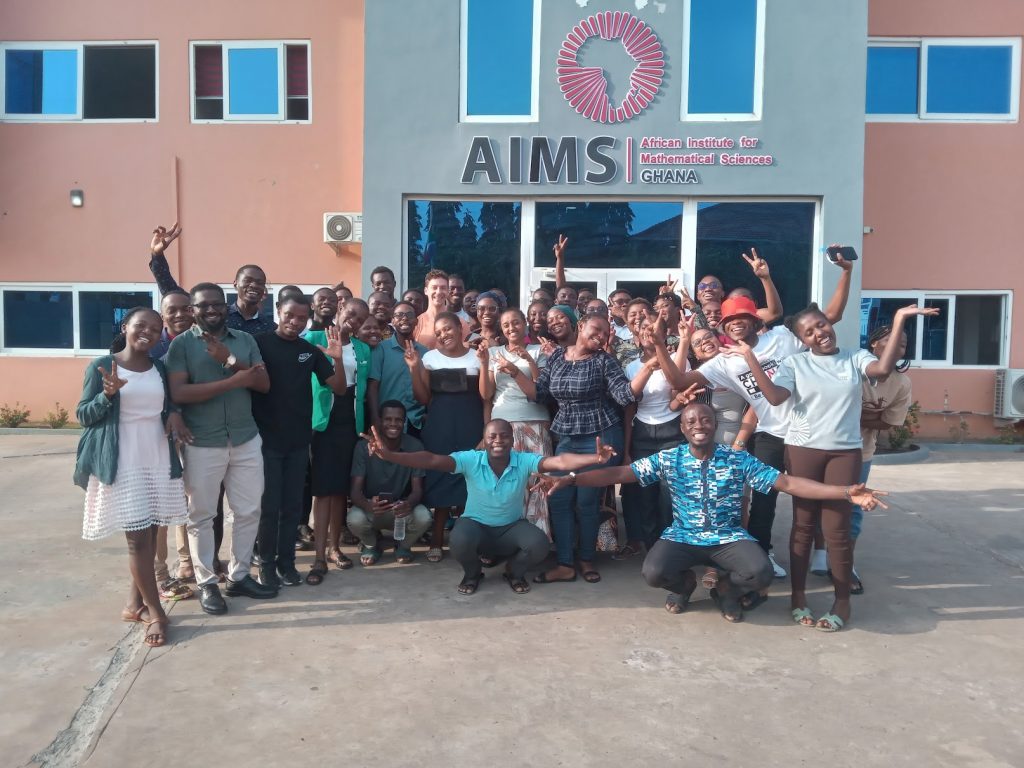Open Quantum Institute explores quantum computing in practice at the African Institute for Mathematical Sciences (AIMS)
18th March 2025
Article by Alexia Yiannouli

On 11th February, Philipp Kammerlander, Applications Expert at the Open Quantum Institute, gave a research seminar at the African Institute for Mathematical Sciences (AIMS) in Ghana.
AIMS is a pan-African network for post-graduate training in mathematics, research and public engagement in STEM. As part of a three-week visiting lecturers programme, Philipp engaged with masters students and research staff to further explore quantum computing in practice in a seminar.
During his seminar, Philipp explored topics from real-world applications, its computational potential and ways of expanding the global quantum technology ecosystem. Alongside this, he introduced the mission of OQI — outlining our key pillars of work and highlighting our focus on real-world use cases aligned with the UN Sustainable Development Goals (SDGs). Philipp also emphasised the importance of taking a multidisciplinary approach in the development of quantum computing and showcased OQI’s growing global community.
Students and faculty had the opportunity to learn more about OQI’s dynamic programme of events and activities throughout 2025. This includes hackathons and the Quantum Diplomacy Game set to take place across multiple continents, aligning with the International Year of Quantum Science and Technology, with an OQI-supported hackathon taking place at AIMS in July.
AIMS remains a valuable member of OQI, and we look forward to the continued collaboration in advancing quantum technology.
